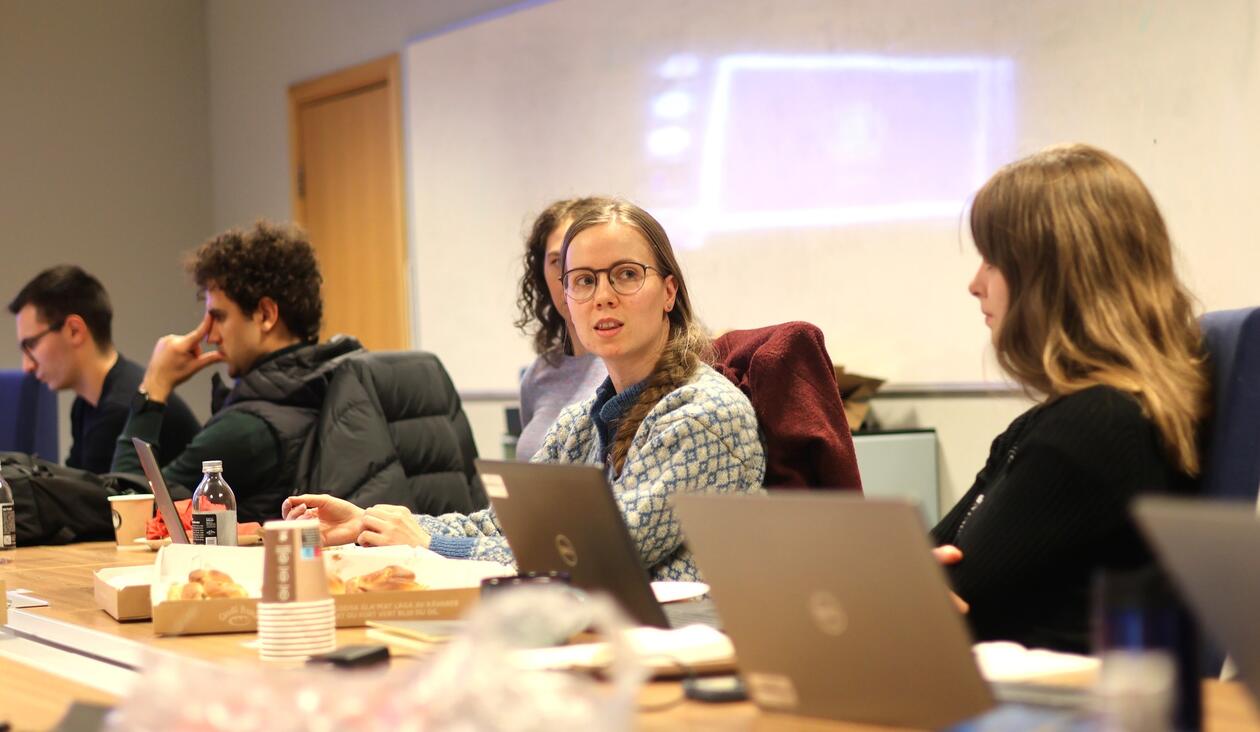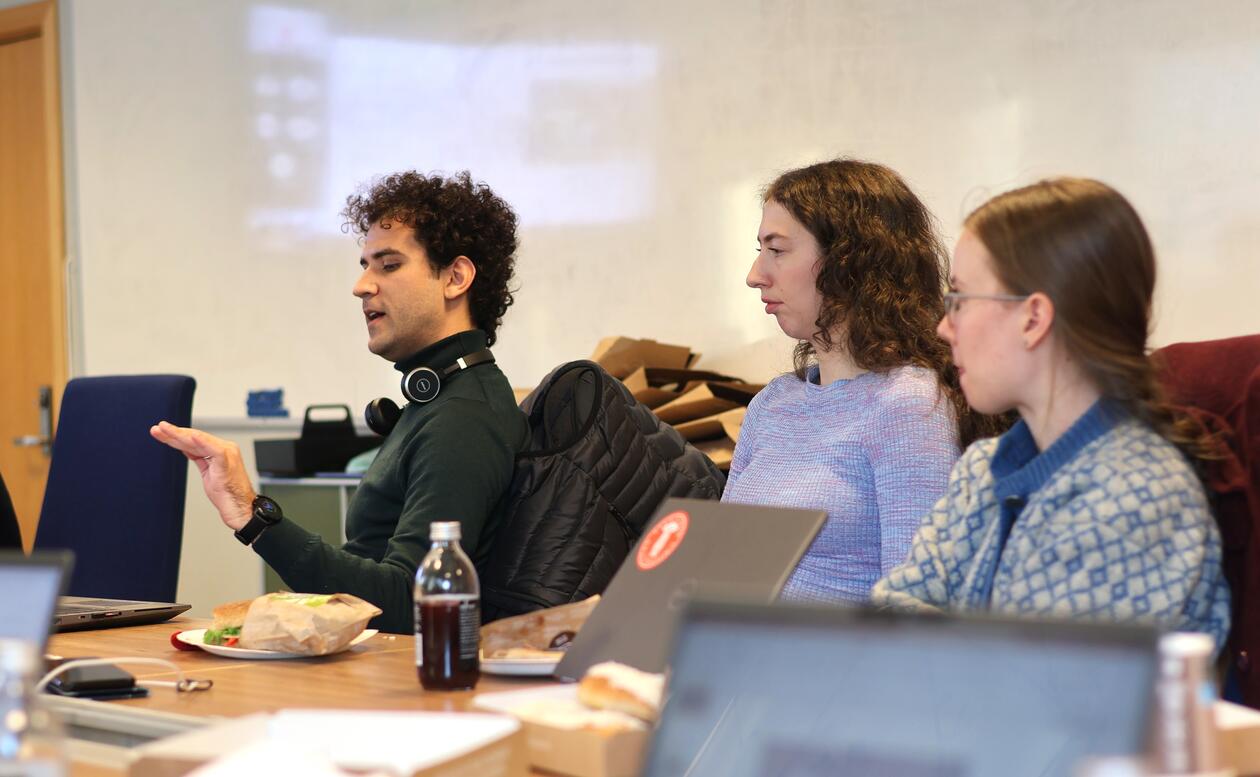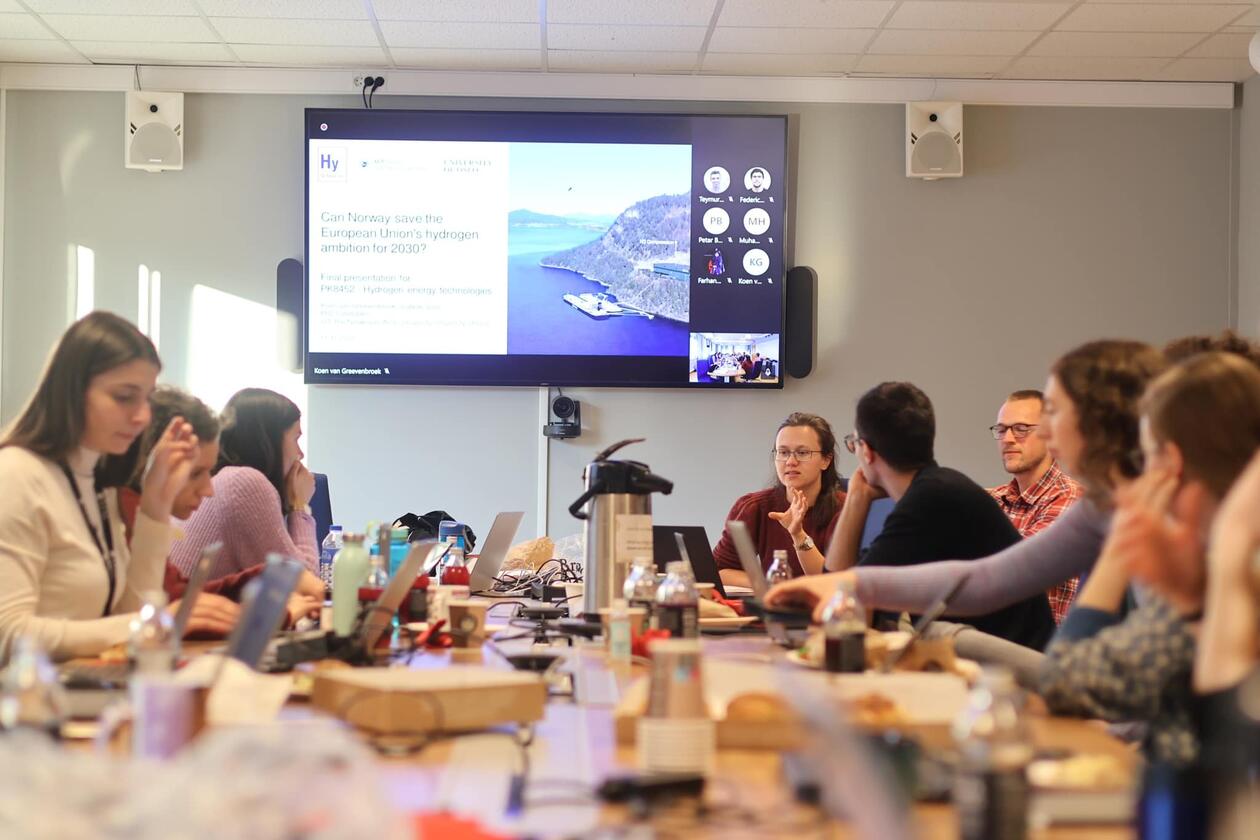HySchool concludes its first hydrogen course
Last Wednesday marked the conclusion of the first subject offered by the course portfolio of HySchool, PK8452 - Hydrogen Energy Technology at NTNU. The course enrolled 22 PhD students from 6 universities, each specialising in various facets of the hydrogen value chain.

Main content
Last Wednesday, 15. November, marked the conclusion of the first edition of the PhD course PK8452 - Hydrogen Energy Technology, also the first subject offered by the course portfolio of HySchool. The interdisciplinary course, offered by NTNU and taught by Associate Professor Federico Ustolin over seven seminars, featured guest lectures on key aspects of different hydrogen technologies from four experts in the field, who also serve as supervisors in HySchool: Professor Xu Lu (NTNU), Professor Hilde Johnsen Venvik (NTNU), Professor Knut Vågsæther (USN), and Professor Sabrina Sartori (UiO).
"It has been quite exciting to create and organize this PhD course on hydrogen technologies at NTNU for the first time. The course covered all different aspects of the hydrogen value chain (production, storage, distribution, applications) including cross-cutting topics (materials, safety, society, economic, modeling, education & training, regulations codes and standards). Supervisors from the HySchool project kindly contributed to the teaching, and I want to thank them for that," says Ustolin.
"The support given by the HySchool project resulted in a total of 22 students enrolling in the course. The gender balance among them was excellent (13 women, 9 men) and positively surprising since this is an engineering subject. The contribution from the students was outstanding, and the discussions during the seminars were enlightening. The course also offered a networking platform critical for PhD students working on emerging technologies such as hydrogen. This could aid the development and deployment of hydrogen technologies in the near future. "
The hybrid format (both in-person and online teaching) was very much appreciated by the students, who came from 6 universities (NTNU, USN, UiB, UiO, UiS, and UiT). The course was taught physically at NTNU’s Campus Gløshaugen, and candidates could attend the seminars digitally aside from the first and last seminar. The candidates specialise in various aspects within the hydrogen value chain, and was able to share during the course their unique insight into their niche of the topic.
"The course has provided a thorough and diverse introduction to hydrogen technologies, highlighting many challenges and opportunities associated with hydrogen. I was pleasantly surprised at how well it worked to participate in the course from different universities. In addition to providing an overview of hydrogen technologies, we have also gained insight into what other PhD students in the course are researching," says Ingrid Marie Stuen, a PhD student from UiB.
"The Hydrogen Energy Technologies course has been a really enriching experience that has allowed us to learn more about hydrogen in its different fields. Learning hydrogen disciplines that are more distant from my PhD-project has been especially easy thanks to the good dynamics in the seminars and the experts that were invited. It has also been a great opportunity to meet more PhD candidates and see how our projects can fit together in an interdisciplinary way," says Alicia San Martin Rueda, a PhD student from NTNU.
During the course, the participants analyzed several articles, and in this final gathering, they gave concluding presentations based on group work and their respective doctoral projects, both individually and in groups. Many questions were asked along the way, leading to insightful and engaging discussions. The course was a perfect platform for the young researchers to share their curiosity and knowledge about the future prospects of the hydrogen society among like-minded enthusiasts.
"What distinguishes this course is its innovative approach, motivating students to present papers beyond their immediate disciplines. It helped me expand my knowledge horizons and pushed me outside my comfort zone. It not only improved my presentation and communication skills but also culminated in a collaborative conference/journal-type paper closely aligned with my primary research," says Petar Bosnic, a PhD student from USN.
"During our final seminar, a stimulating discussion unfolded regarding the ambitious EU and Norwegian goals for hydrogen production up to 2030. This discussion added depth to our understanding, particularly with an emphasis on blue hydrogen production and ammonia for transport and storage as transitional vectors before establishing infrastructure for utilizing renewable energy sources such as offshore wind for green hydrogen production, and the transport of cryogenic or pressurized hydrogen.
In essence, I highly recommend this course for PhD students specialising in the hydrogen value chain. It not only provides a robust foundation in hydrogen energy technologies but also facilitates invaluable networking opportunities, a crucial component of academic and professional development."
The next edition of PK8452 is planned for the Fall semester in 2024, and all PhD students working on hydrogen technologies are welcome.





